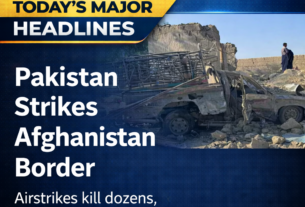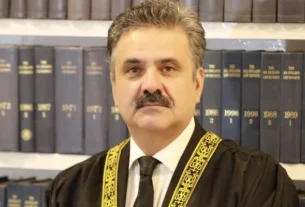Over 11 million children under the age of five are at grave risk as they breathe in toxic air across Punjab, a region already grappling with severe air pollution, warns the United Nations Children’s Fund (UNICEF). Abdullah Fadil, UNICEF’s representative in Pakistan, urgently called for more decisive measures to combat the region’s air quality crisis, particularly in the worst-hit districts of Punjab.
Last month, the air quality in the province was officially declared a “calamity,” and schools in major cities, including Lahore, have been closed until November 17 to limit children’s exposure to harmful pollutants. In a bid to mitigate the effects, public access to parks, zoos, playgrounds, and museums has also been restricted until the same date.
The Air Quality Index (AQI) for cities like Lahore, Multan, and Sialkot has soared, with Sialkot reaching an alarming AQI of 774, far exceeding the “hazardous” threshold of 300. These alarming levels have led to a surge in hospitalizations, especially among children, as air pollution continues to break records in major cities.
UNICEF’s statement highlighted the global scale of the crisis, noting that air pollution is so severe it is visible from space. Fadil expressed deep concern over the impact on young children, who are particularly vulnerable due to their underdeveloped lungs and immune systems. He warned that prolonged exposure could have long-term effects, including damage to brain tissue, impaired cognitive development, and severe respiratory issues for both children and pregnant women.
In addition to the health risks, the disruption of education has become a major concern, with nearly 16 million children’s schooling in Punjab affected by the closure of schools. The shift to online learning has failed to fully address the damage done to children’s education, Fadil added.
UNICEF is calling on the government to prioritize the right of every child to clean air and to take stronger actions to reduce emissions from agriculture and industry. Fadil stressed that these efforts must go beyond climate change mitigation and become urgent measures to protect public health, particularly that of children.
As the world turns its attention to COP29, UNICEF urges governments to transform their commitments into immediate action, warning that the health, education, and future of millions of children depend on it. “We cannot allow our children to suffer the consequences of toxic air,” said Fadil, emphasizing that swift action is necessary to safeguard the next generation.
ARY NEWS, BBC NEWS, GEO NEWS, DAWN NEWS





